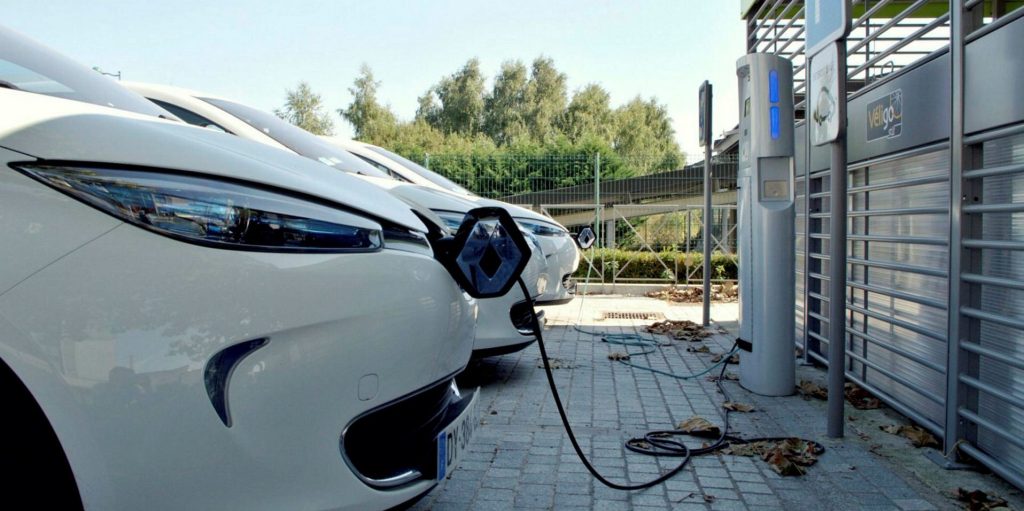February 26, 2024: In the Media: Securing Canada’s future in EV industry demands proactive investment in a skilled workforce

The Hill Times | Opinion | BY ALI EMADI |
What will determine the success of these enterprises in Canada is resources: not just natural resources such as lithium and other critical minerals, but human resources.
Major automakers placed a huge bet on Canada when they committed to building massive factories here to make batteries for electric vehicles.
While Canada certainly helped make those decisions easier with enticing financial incentives, the job is far from over.
The next challenges will be to keep those factories here—two in Ontario (Stellantis-LG in Windsor and Volkswagen in St. Thomas) and one in Quebec (Northvolt in Montreal).
Even after providing billions in incentives to attract them to Canada, it will be critical to support the success of those colossal factories and to attract and retain the small and medium-sized companies that supply them.
The result can help Canada reach the long-elusive goals of achieving greater industrial sophistication and independence, including the economic and employment rewards that go with them, while accelerating the move away from environmentally harmful fossil fuels.
This is a turning point, an opportunity that can bear fruit for generations. We have a responsibility to make the most of it.
What will determine the success of these enterprises in Canada is resources: not just natural resources such as lithium and other critical minerals, but human resources.
Those factories will need Canadian-educated people with advanced skills and training to make them work, not as much on the factory floor, where automation is increasingly taking up less-skilled work on increasingly sophisticated components and systems, but in such areas as planning, design, engineering, programming, and supply-chain management.
Those professionals must be ready for the work of today and prepared to adapt and continue innovating in a highly competitive, maturing industry that is still just getting off the ground.
Understanding the needs of these businesses and preparing graduates to meet them requires collaboration, practical partnerships, and strong support from government, industry, and academia alike.
At the McMaster Automotive Resource Centre (MARC), for example, our students and faculty members are enthusiastic participants in the EcoCAR EV Challenge (U.S. Department of Energy and GM) and the Battery Workforce Challenge (U.S. Department of Energy and Stellantis).
These hands-on programs are meaningful to their business and government partners and to the schools who are invited to participate.
In broader terms, our engineers, working with students, are in constant communication with their counterparts in industry, all working toward similar ends: to create transportation technology that is efficient, sustainable, affordable, and viable, while reducing our dependency on imported materials.
By equipping students with the expertise to thrive in the EV industry, we can also retain talented graduates who might otherwise seek opportunities abroad. Their high-paying jobs will improve the prosperity of their families and communities.
Investing in building a skilled workforce will help Canada move up the value chain to capture higher-value economic activity beyond resource extraction and initial processing. Canada’s federal and provincial governments can support these efforts with strategic investments and collaborations in research and education.
Cultivating and retaining skilled workers will also give Canada a stronger voice in decision-making processes within the multinational corporations they serve. As Canadian-educated professionals rise to executive positions, they will carry with them a profound understanding of Canada’s advantages and influence decisions in favour of the country’s interests.
Without a steady stream of skilled workers to sustain these factories, Canada risks losing its EV-related manufacturing opportunities. Failing to invest in training now could lead to the eventual relocation of factories to countries with readily available talent pools, depriving Canada of significant economic opportunities and undermining its competitiveness in the global market.
Government support for universities is indispensable to ensure they can continue producing the skilled professionals required to propel Canada’s automotive industry forward. Likewise, boosting industry collaboration with educational institutions in this period of rapid change and opportunity can ensure that our teaching remains as relevant as possible and that the skills of graduates are aligned with industry needs.
Securing Canada’s future in the EV industry demands proactive investment in a skilled workforce.
By supporting universities and empowering students to take their places as the next generation of leaders in the field, Canada can not only retain its position as a hub for EV manufacturing but also pave the way for sustainable economic growth and innovation. The time to act is now. The future of Canada’s automotive industry hinges upon it.
Professor Ali Emadi, PhD, is the Canada Excellence Research Chair Laureate and Canada Research Chair in Transportation Electrification and Smart Mobility at McMaster University.